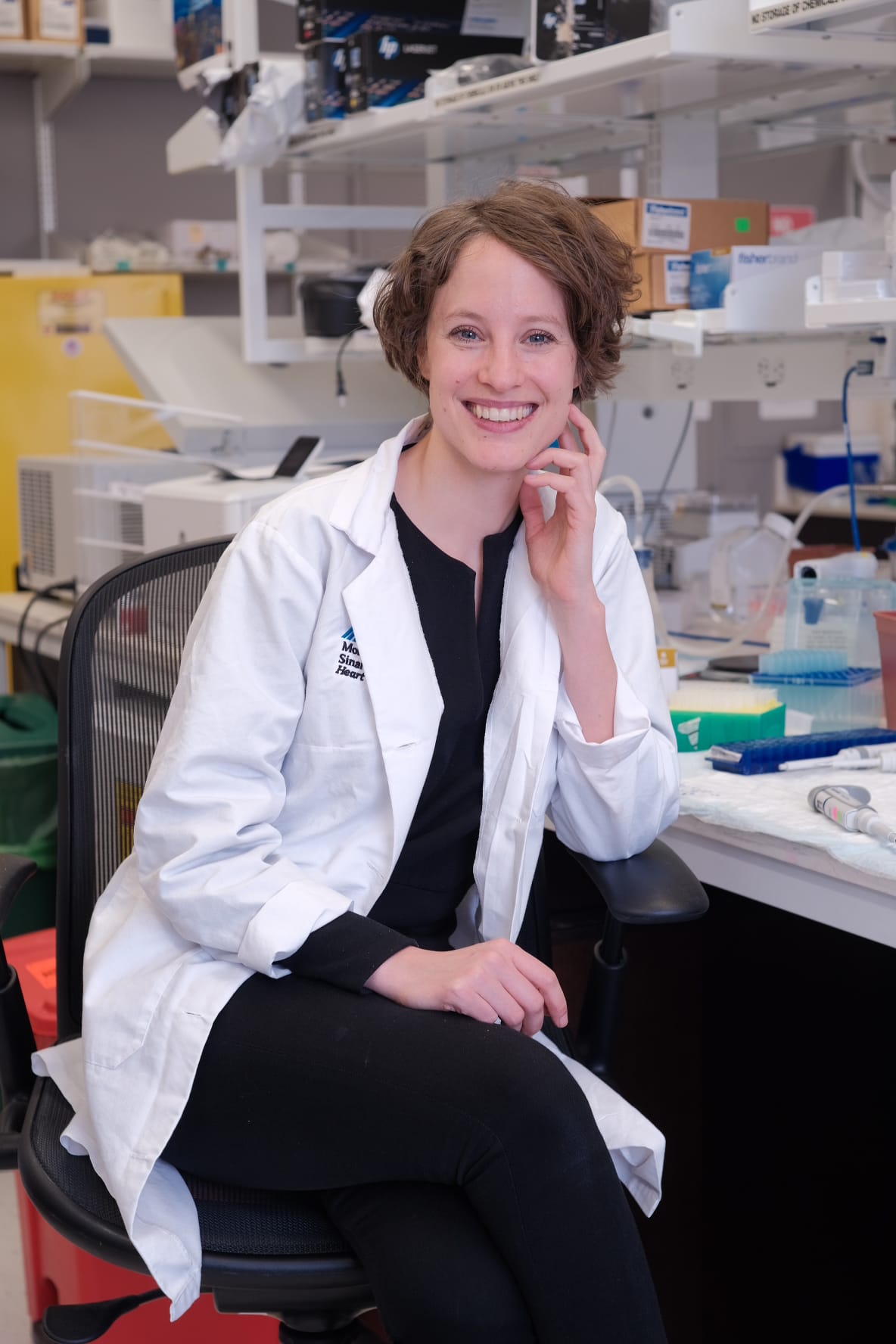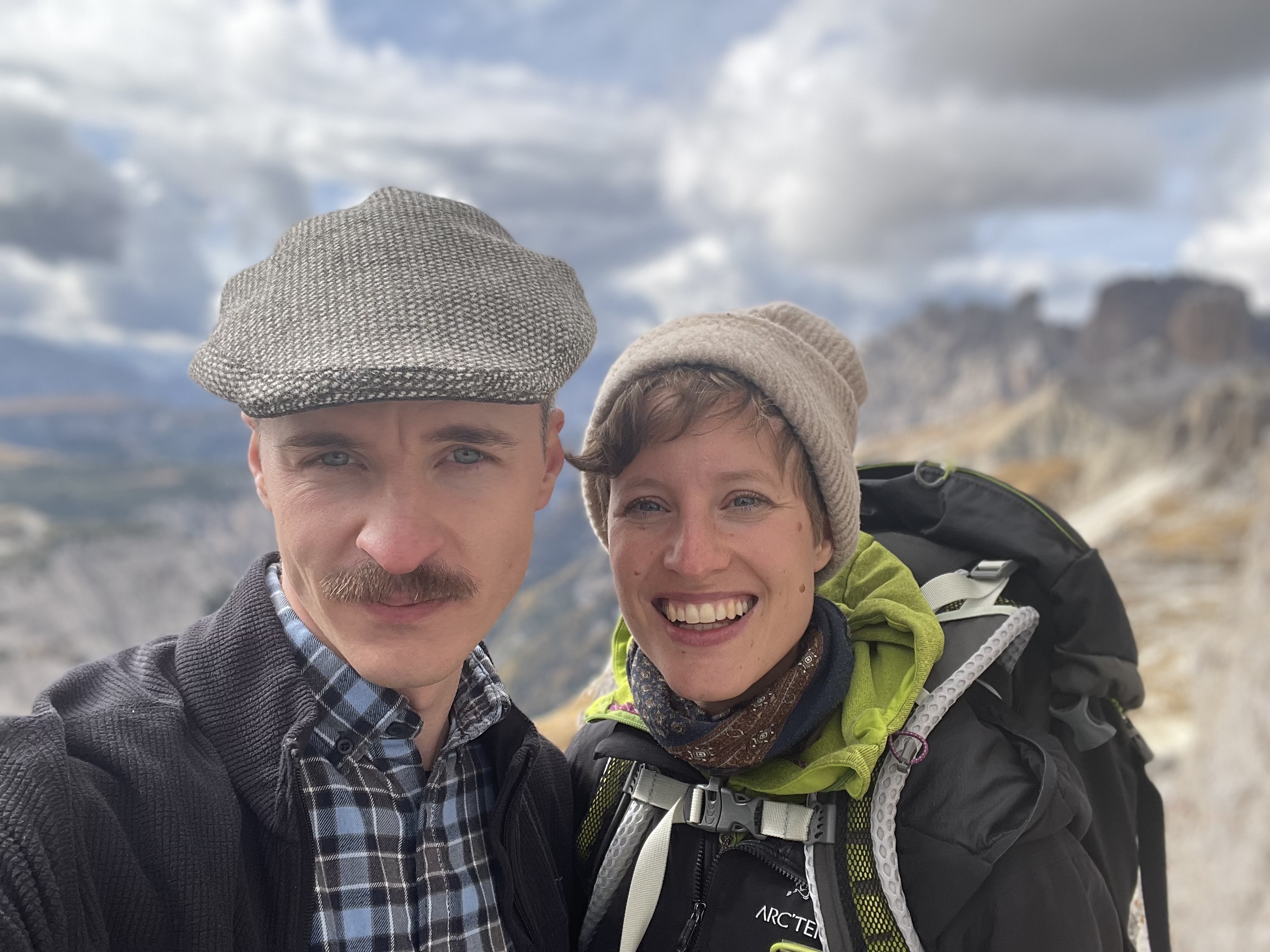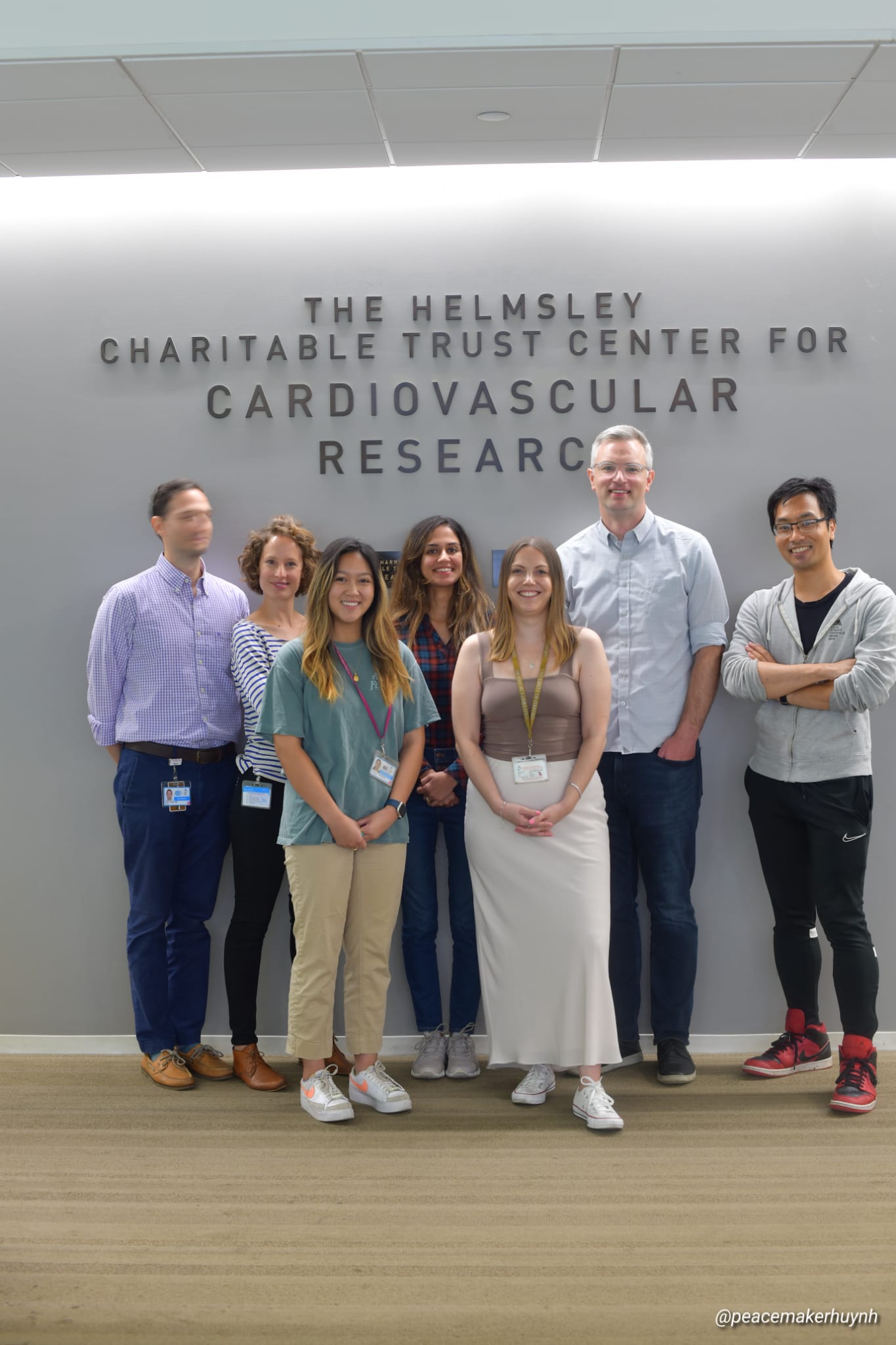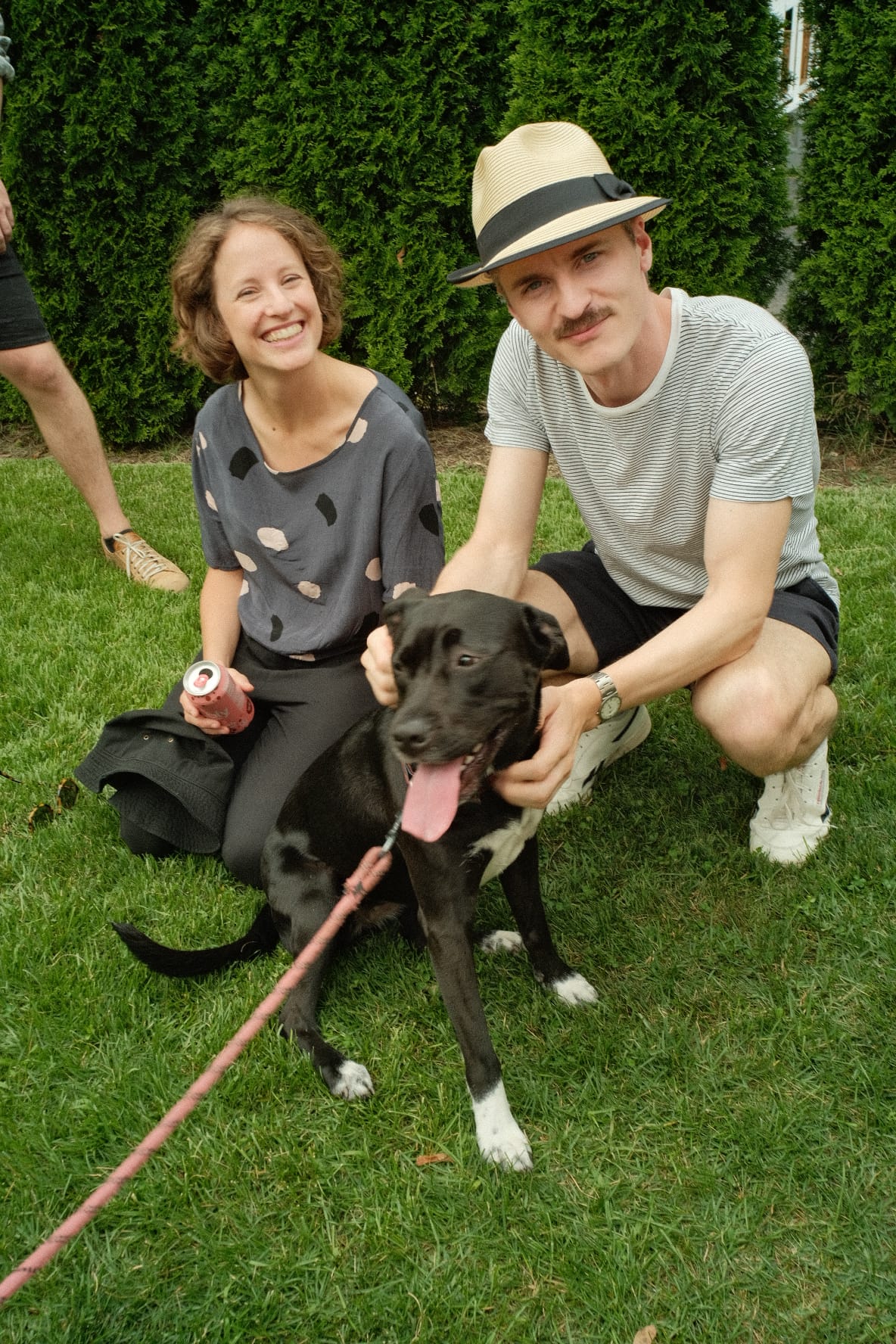Career Booster North America: Interviews with German researchers in the USA and Canada

Dr. Teresa Gerhardt in the lab
© private
(17.01.2024) Through its research fellowship programme, and since 2019 through the Walter Benjamin Fellowship, the DFG supports researchers in early career phases by funding an independent research project abroad and, since 2019, in Germany too. Many of these fellowships are taken up in the USA and to a lesser extent in Canada. In a series of talks, we aim to give you an impression of the range of DFG funding recipients. In this edition we take a look at who is behind funding number GE 3588.
DFG: Dr. Gerhardt, thank you so much for taking the time to talk to the DFG’s Office North America. Your CV suggests that in your career to date you’ve enjoyed long – at least highly productive – periods of wakefulness. Your current focus of interest is the impact of sleep on inflammatory processes and cardiovascular health. A non-expert would assume that a lot of sleep is healthy and a lack of it is not. How much sleep do you need yourself?
Teresa Gerhardt (TG): First of all, allow me to thank you for the opportunity to do this interview and in particular to pursue my fellowship, which gives me the chance of a wonderful research stay in New York. I actually like to get between seven and eight hours of sleep, which is the generally recommended amount. These are figures that certainly allow for individual deviations, however, especially if we take into account some of the more recent findings on sleep quality that go beyond the ideal number of hours – rather nicely encapsulated by the notion of “sleep hygiene”. It’s interesting to note here that sufficient sleep is vital in terms of maintaining overall physical and mental capability including heart health, but recent studies suggest that too much sleep – a phenomenon that does actually exist – could even be counterproductive, potentially acting more as a contributing factor to the occurrence of heart attacks.
DFG: You passed your secondary school leaving examinations in Würzburg with straight A grades and then went on right away to study medicine in Freiburg. Was this path to medicine already mapped out for you during upper secondary school, possibly motivated by your family? And was it this that led you to focus your academic efforts at school on this goal?
TG: If I’d been able to fulfil my wishes and dreams as a young teenager, I’d now be earning my living playing concerts on the grand pianos of this world. Although I started playing the piano relatively late, I went to the effort to make time for those proverbial thousands of hours of practice alongside school – sometimes doing as much as seven hours a day. At some point at the age of 15 or 16 I came up against a reality check: looking back, I’m not entirely sure whether I should be grateful that I was spared a tough and highly competitive career as a pianist, or annoyed that I allowed myself to be put off. The best thing for me now is of course to make the most of both these insights – and not allow myself be put off so easily, whether now or in the future.

With partner on a mountain hike
© private
It’s true that we already have two doctors in the family – my mother and my sister Louisa, who’s two years older than me – so my choice of degree programme after leaving school wasn’t exactly surprising. I’d say the thing I’ve learned most from my mother is her assertiveness. She had her two children comparatively late in life and discovered from personal experience that, at least at the time when she was a clinical scientist in Germany, not so much importance was attached to the compatibility of career and family. I hope we’ve progressed beyond this area since then, not least thanks to people like her.
DFG: You now specialise in cardiology. How did that come about?
TG: That happened through my involvement in auto-immunology and inflammation research while I was on a one-year doctoral stay with Professor Klaus Ley in La Jolla, California, in 2015. I was particularly fascinated by his idea of developing a vaccine against atherosclerosis – the most common cause of heart attacks and strokes. This was also the subject of my doctoral project, which in turn formed the basis for my later interest in cardiology. I also liked the fact that he conducts research based on the assumption that we’re often less able to understand diseases if we look at them in isolation and that we should focus on more complex processes instead. On his website it says: “You don’t cure the disease by only looking at the disease. Very often cures come out of left field.” That sounded very plausible to me, so I applied straight away.
DFG: You’re looking to use your research stay here in New York to build your own profile in the field of translational research and gain a better understanding of lifestyle-related and non-classical risk factors in connection with atherosclerosis and other cardiovascular diseases. What is the role of sleep here?
TG: In highly developed countries we’re seeing significant progress in the treatment and control of classic risk factors relating to cardiovascular diseases – such as high blood pressure, diabetes and lipometabolic disorders. Although this has led to a reduction in cardiovascular disease and the deaths it causes, a significant primary and secondary cardiovascular risk remains that is not accounted for by classic risk factors and so it can’t be controlled. It’ll come as no surprise that researchers are now looking at other factors, too: stress, lack of exercise and poor nutrition are among the usual suspects here. We also know from epidemiological studies, for example, that an increased risk of heart attack is associated with insomnia and other sleep disorders, including excessive sleep. But we’re still unfamiliar with the exact mechanisms at work here – in the case of both too little and too much sleep – and that’s the subject of my research.
DFG: How are we to picture the scientific investigation of a question that focuses on how the quality and quantity of a person’s sleep affects their heart health?
TG: When we’re doing projects that deal with disrupted sleep or insufficient sleep, we primarily work here in the lab with mice, which we wake up regularly using special sleep fragmentation cages, as they’re called. The cages are commercially available. But mice that sleep for a very long time – around 17 hours a day – are so unusual and difficult to obtain that we have to breed them ourselves.
DFG: Why is that?
TG: A few years ago, researchers in Japan discovered a genetically modified mouse model with a mutation in the Sik3 gene. These mice sleep for an extraordinarily long period of time, but you can’t simply purchase them in the US or Europe. That’s why we started breeding our “late sleepers” ourselves using frozen semen flown in from Japan. Unfortunately we’ve come up against the problem that the male Sik3 mouse has little interest in reproducing – no doubt because it spends a lot of the time asleep. That’s why the project is dragging on somewhat.

Group in the lab
© private
DFG: The subject of your research is the heart: outside the domain of science, the heart is an organ to which people ascribe numerous other functions apart from that of a pump for blood circulation. Is this broader association something that’s “close to your heart” in a personal sense?
TG: Firstly, the heart is just one of many organs for which a meta-level exists: whether it’s the heart, the eyes or the skin where people believe the human soul is located, that’s as irrelevant to myself as a cardiologist as it is to a dermatologist or an ophthalmologist. Secondly, even though I’m a doctor and a researcher, I’m just as receptive to genuine love and affection – and tearjerkers – as people who know less about ventricles and atria. And of course I enjoy films, art and literature that derive some of their dramatic tension from this type of meta-level – it would be boring not to.
DFG: That sounds as if boredom is not something you’re very familiar with.
TG: Exactly, my life outside of work is far too varied and interesting for that. My partner – who also holds a Walter Benjamin Fellowship in the US, by the way – is a philosopher, sociologist and prolific author in the broad field of moral discourse. The numerous conversations I have with him very often revolve around things that have nothing to do with my day-to-day routine at the lab. We currently go hiking in the Hudson Valley whenever we have the opportunity – just as I started surfing during my time in San Diego and rode my racing bike in Freiburg. When daylight is scarce or the weather is bad, I also enjoy yoga and swimming. And I love reading fiction, too – so much so that I’ve started a reading group with my partner and a diverse group of New Yorkers.
DFG: Any tips?
TG: Absolutely, the books we’re currently discussing in the group are well worth reading, for example: In the Distance by Hernán Diaz and the novels by Jon Fosse, such as his Trilogy. Diaz draws his linguistic power from the sheer wealth of his vocabulary, as is familiar from the novels of authors like Gabriel García Márquez or Thomas Mann, whereas Fosse does so through economy of expression. His more concise phrasing has an Old Testament-like gravity that’s comparable to someone like Cormac McCarthy or Robert Walser. But we’re not scholars here, mind you – we just enjoy the literature.
DFG: Is there anything you miss here in New York?
TG: As a doctor I naturally miss working with patients, and when I’m out hiking I also miss the kind of variety you find in Germany in terms of picking mushrooms, but all in all I’m very happy here and feel suitably energised.
DFG: In addition to Würzburg, your CV lists stays in Freiburg and Berlin, as well as exotic places abroad such as Martinique. Which place did you like best, firstly in Germany and secondly abroad?

With June, the lab manager’s dog
© private
TG: As I see it, every town and city in Germany has its own distinctive charm – something that should never be underestimated. Internationally, I’d go back to Montreal in a heartbeat, regardless of the good surfing conditions in San Diego, the chic of London or the Caribbean flair of Martinique. I spent time in London, Martinique and Montreal during my practical year after my second state examination, and if you’d seen me when I landed in wintry Montreal coming from the tropical island of Martinique, you’d probably have seen my shock at the 50-degree temperature difference. In any case, everyone there was really nice to me and people were keen to talk to me in both French and English. I really liked the hospital system, too, with its flat hierarchies and excellent patient care. And it's a place where you don’t initially think you’re in North America, not least in terms of architecture and the sheer cultural variety.
DFG: What do you plan to do after your research stay here in New York?
TG: I hope my stay here will be as productive as possible of course, so much so that reviewers will continue to see exceptional academic potential in me so I can subsequently apply to head a research unit back in Germany, for example through funding under the Emmy Noether Programme. I’d also like to complete my medical specialist training and obtain my post-doctoral lecturing qualification – and then my partner and I will see whereabouts in Germany or Europe we end up. But there’s something else I would add here: two years is actually too short if a research stay is so productive that it makes further top-level research likely – especially where lengthier experiments are involved. This only works for me subject to three conditions. Firstly, the DFG fellowship allows me to focus very closely on my project – that’s a huge advantage. Secondly, the research environment here is exceptionally favourable, firstly Cameron McAlpine’s group, and then also the Mount Sinai Cardiovascular Research Institute under the direction of Professor Filip Swirski. And thirdly, you need a very good research question for your project, too: you usually find out what’s good and what’s not so good from the reviewers (if the reviewers have taken their task seriously) and from a good mentor. Cameron is an excellent mentor – very enthusiastic and inspiring. If it were possible to describe his way of pursuing science in aesthetic terms, I would say it was “beautiful”.
DFG: Beauty is a quality that is perhaps mentioned too rarely when describing science, apart from mathematics, so we’re grateful for your comment. We’d also like to thank you for this fascinating interview, and we wish you all the very best for the future, in both your career and your private endeavours.